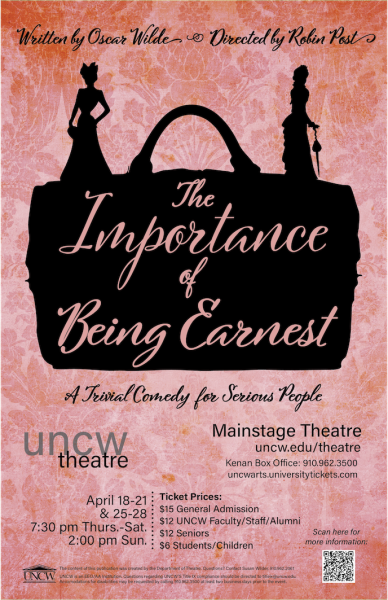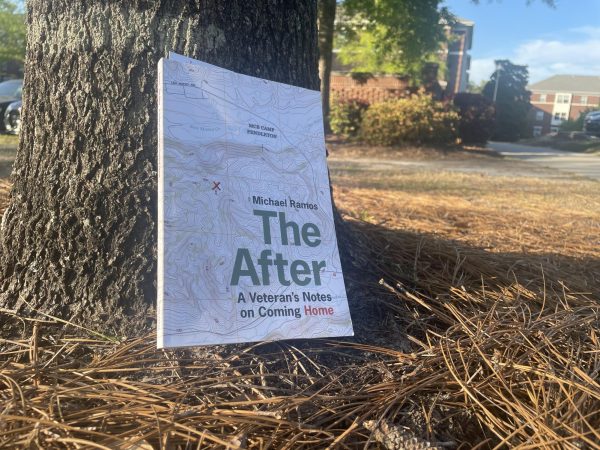A Man and his Uke: A Review of UNCW Presents Jake Shimabukuro
February 16, 2011
How entertaining could a single instrument really be? That was the question needing an answer for many preparing to watch the Hawaiian-born ukulele virtuoso Jake Shimabukuro play through a set with his instrument and nothing else: no vocals, no backing band, and no frills. As it turns out, that other stuff would just have been in the way.
Shimabukuro, who rose to national prominence when a live rendition of “While My Guitar Gently weeps” recorded in Central Park in 2006 went viral on YouTube, appeared Friday, February 11th, as part of the 2010-2011 UNCW Presents series of visiting personalities. Playing before a sold-out Keenan Auditorium crowd comprised of students, faculty, locals, and a few who had travelled just for the event, Shimabukuro demonstrated with each song that the ukulele is good for a lot more than anybody thought. Dressed simply in jeans, a button-down shirt, and a fedora on the sparsely lit, unadorned stage, Shimabukuro consciously eschewed traditional Hawaiian standards in exchange for a mix of originals and covers ranging stylistically from pop and rock through blues, classical, and flamenco.
Shimabukuro’s ability to work with diverse genres—as reflected on his latest solo album, “Peace, Love, Ukulele”—is noteworthy given a first glance at the instrument’s limitations: a mere four strings and a two-octave range. What Shimabukuro can coax from those confines, though, is impressive: burning, bluegrass-inspired romps like “Bring Your Adz” showed off Shimabukuro’s renowned speed, while slower numbers such as “Go for Broke” and “Pianoforte 2010” allowed him to savor individual notes to their full potential, as did a haunting version of Leonard Cohen’s oft-covered “Hallelujah.” In the “just showing off” category, he finished with a hilarious, spot-on rendition of Queen’s “Bohemian Rhapsody,” followed with, at last, a Hawaiian standard, “Crazy G,” played so quickly that the collective pulse of the audience raced by the end.
The covers work in part because Shimabukuro’s skill allows him to make the ukulele sound like whatever other instrument he chooses. Muted chords take on the effect of percussion and complex string arrangements substitute for vocals, ultimately making the idea of a backing band simply unnecessary. However, without lyrics to provide narration, Shimabukuro paused between most songs to convey an anecdote about the history of each, such the WWII exploits of his Japanese-American ancestors that inspired “Go for Broke.” As a bonus, he’s a good storyteller: often funny and self-effacing, his monologues helped the pace, providing downtime between furious bursts of his “uke.”
Shimabukuro is fond of saying, “If everyone played the ukulele, the world would be a better place.” Perhaps that’s a tall claim, but if everyone played the ukulele like Jake Shimabukuro, it would be difficult to argue. But the most inspiring thing about Shimabukuro’s musical bio may simply be the sheer weirdness of it. As Friday’s crowd would attest, it’s difficult to tell anyone they can’t be what they want when they grow up when someone can create a niche for himself as the world’s only ukulele rock star.





















